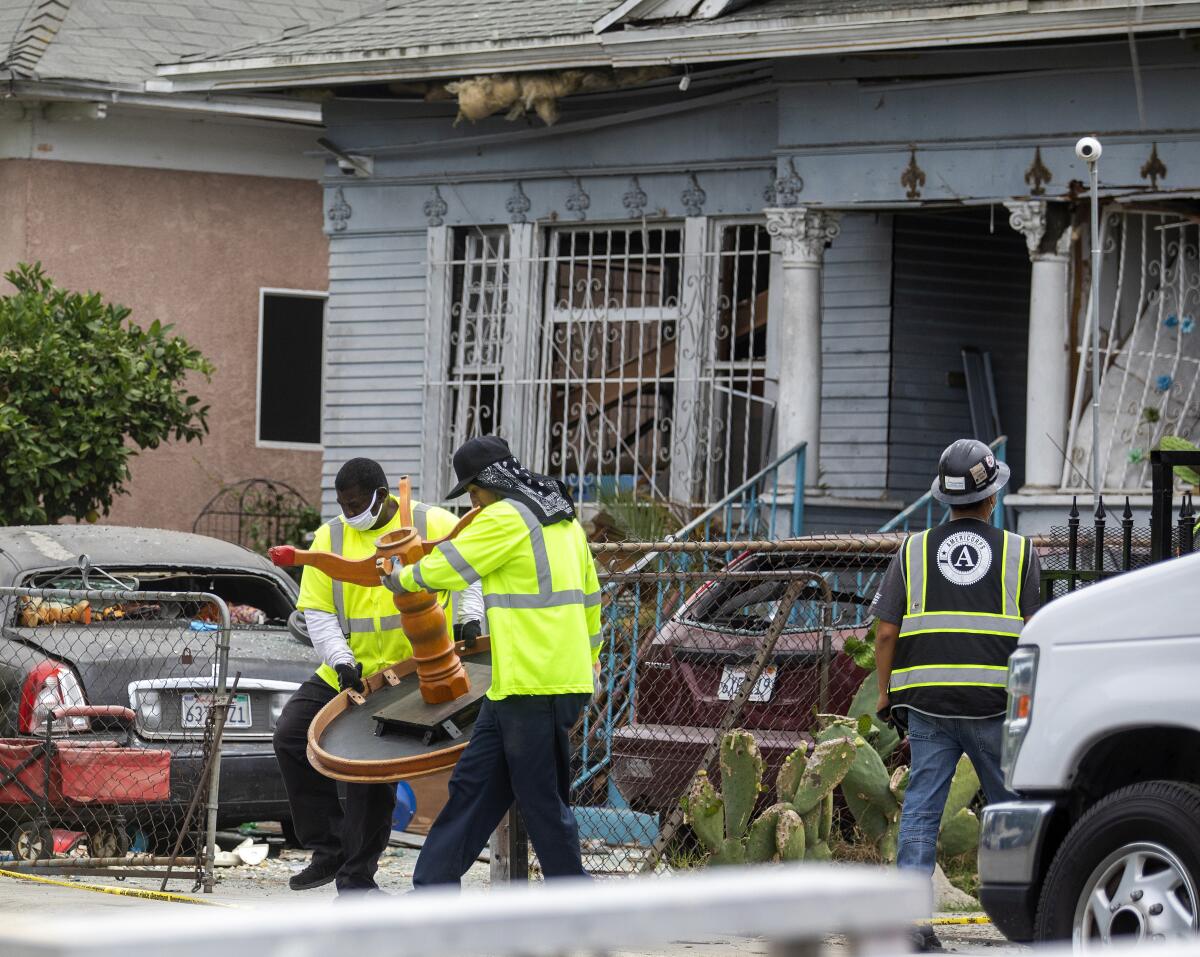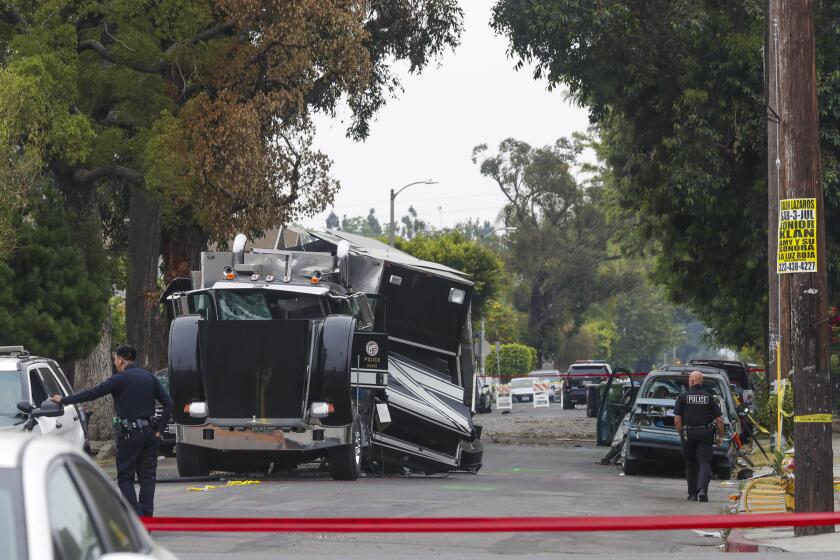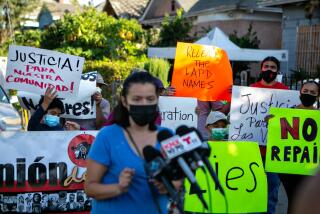Editorial: More accountability, less cluelessness needed from LAPD

- Share via
More than two years after the Los Angeles Police Department’s reckless South Los Angeles fireworks detonation, the department continues to pile one error on another, revealing an ignorance of the laws it is supposed to enforce and ever-increasing estrangement from the public it is supposed to serve.
The disastrous June 30, 2021, incident occurred when members of the LAPD bomb squad overloaded a containment vessel with confiscated illegal fireworks and then detonated it in a residential and business district area on East 27th Street near San Pedro Street — despite warnings from an experienced member of the team that the explosives might be too powerful for the unit.
The warnings proved correct. The explosion injured 17 people. It damaged or destroyed dozens of homes and businesses and displaced more than 80 residents.
The public has a right to all reports and records about the incident and the names of officers involved, in order to hold the department accountable and assess the adequacy of its follow-up, including its investigative, management and disciplinary systems. That right is set forth in Assembly Bill 1421, adopted in 2019 and codified as Penal Code Sec. 832.7. The law requires that records be made public for incidents “involving the use of force against a person by a peace officer or custodial officer that resulted in death or in great bodily injury.”
The city needs to get aid to residents and businesses fast.

The explosion was obviously an injurious use of force by officers that resulted in great bodily injury. It matters not at all that the injury was inflicted by explosion rather than firearm or police baton, or that it was an unintended consequence of the detonation.
The public’s right to information about the officers whose actions resulted in injury are not limited under the statute by the means of the injury or the intended outcome. The justification for the public to be informed of which officers inflicted injury and whether they were adequately disciplined (or even promoted), and in what positions they currently exercise their judgment, is the same whether the injured parties were shot or suffered shrapnel wounds from an explosion.
Records also must be produced under Senate Bill 16 documenting findings involving complaints alleging unreasonable or excessive force or regarding officers who failed to intervene to stop such force.
Instead, the department has so far withheld the records in contravention of the law and has declined to even identify the officers involved. So Times reporters did what responsible reporters do: They combed documents, they asked questions, they knocked on doors, including at the homes of some of the police officers involved in the incident, to get their side of the story. In the journalism business this is known as “legwork,” “shoe leather reporting” or, when it comes right down to it, just plain old-fashioned reporting.
Times reporters Brittny Mejia, Libor Jany and Richard Winton identified and reported the names of several LAPD personnel at the scene: Det. Damien Levesque and bomb technicians Mell Hogg, Mark Richardson, Brendan McCarty, Thomas Deluccia and Stefanie Alcocer. Alcocer was suspended for 10 days but later promoted to sergeant. At least some of the accused officers appeared before the Board of Rights, a disciplinary review panel.
A 40-year era of police secrecy in California comes to an end Tuesday, and law enforcement agencies and officers ought to be ready.
LAPD Chief Michel Moore, astoundingly, exacerbated his department’s stonewalling by criticizing the reporters’ adherence to high standards of journalism as somehow crossing an ethical line. He appears to oppose knocking on doors and asking questions, unless perhaps it’s the police doing the knocking and asking.
After more than two years, the public still does not have full information to hold LAPD leaders accountable for the disaster because of the department’s outrageous refusal to abide by public records laws.
We call on Mayor Karen Bass, who signed off on Moore’s reappointment in January despite inadequate public consideration of his performance, to make her position clear on the refusal to turn over records of the explosion’s aftermath and Moore’s attitude toward reporters’ exercise of their 1st Amendment rights.
For several decades, law enforcement agencies and officers’ unions literally wrote the laws that govern their conduct, granting themselves secrecy and impunity, and instructing compliant lawmakers to adopt their statutes. The people have begun to demand change and to restore the understanding that it is the job of the police to protect and serve the public, and not the other way around.
The LAPD should reverse its shameful failure to release records of the incident. It should confirm the identity of the officers and make clear how they were disciplined, and if they were promoted. It should provide a public accounting of its efforts to alter department protocols and culture in response to the disaster.
More to Read
A cure for the common opinion
Get thought-provoking perspectives with our weekly newsletter.
You may occasionally receive promotional content from the Los Angeles Times.











